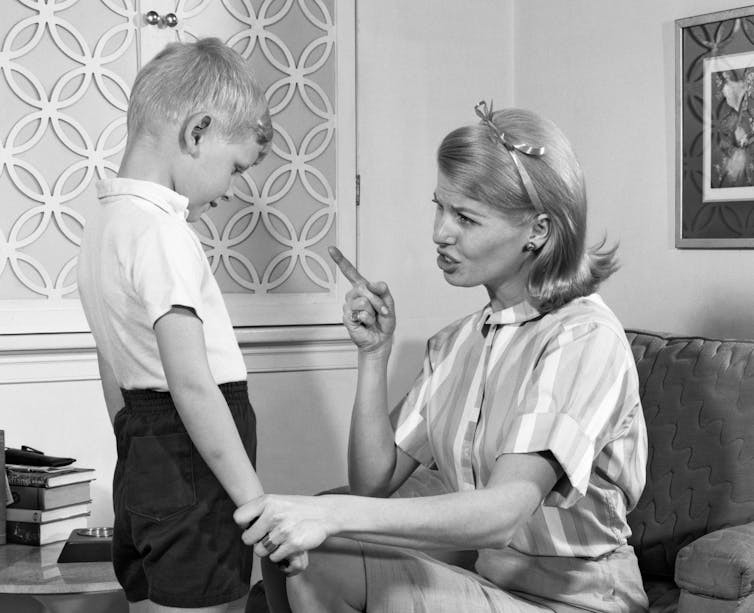
Curious Kids is a series for children of all ages. If you have a question you’d like an expert to answer, send it to [email protected].
Why do my parents always act like they know best? – Taliyah, age 12, Gwinnett, Georgia
Nobody likes getting bossed around, but your parents’ bossiness is probably well-intentioned.
As a psychologist who studies family relationships, I can tell you that a parent’s No. 1 job is to keep their kids safe. When a kid becomes a teenager, their world becomes more dangerous. Relationships with friends can become complicated and even toxic. Drugs and alcohol become more readily available and more tantalizing. Mental health can take a nosedive, and social media doesn’t help.
There are a bunch of reasons why these risks increase as you grow up, but peer pressure is mostly to blame.
To protect their teens from those dangers, parents have lots of strategies. They may discipline their kids – “You’re grounded!” – or challenge them to do better with phrases like, “When I was your age, I didn’t behave like that.” Or they might reprimand you: “I’m really disappointed in you.”
If your parents have ever acted like that with you, then it is likely about keeping you safe. Most parents understand the dangers you face. They may have experienced them personally and want you to avoid the same mistakes they made. If your parents’ guidance is keeping you from harm, I’d say that they really do know what’s best.
Your brain is still developing
OK, I got that out of the way. Are you still reading? I hope so, because this next part is more interesting and nuanced, and it’s about you and your brain.

The finger wag: Always in style.
H. Armstrong Roberts/ClassicStock/Getty Images
Right now, your brain is undergoing remarkable growth. Starting around 10 years old, there’s a flurry of activity in what’s called the subcortical regions of your brain – a scientific term for the brain’s inner core. These parts of the brain are associated with emotions like anger, anxiety and defensiveness.
Are you feeling those emotions pretty regularly these days? If so, congratulations! You are 100% normal.
As you get older, your brain’s outer regions will become more developed, too. The last bit to mature is right behind your forehead, in an area called the prefrontal cortex. That area is associated with the ability to understand how someone else feels, and to put yourself in their shoes.
Experts who study brain development call this skill “perspective-taking.” It means that when you’re reprimanded for breaking the rules – for example, by staying out late – you don’t lash out defensively. Instead, you acknowledge that the person doing the reprimanding is worried or scared, or simply looking out for you.
Seeing life from another perspective
For adults, this perspective-taking can…



